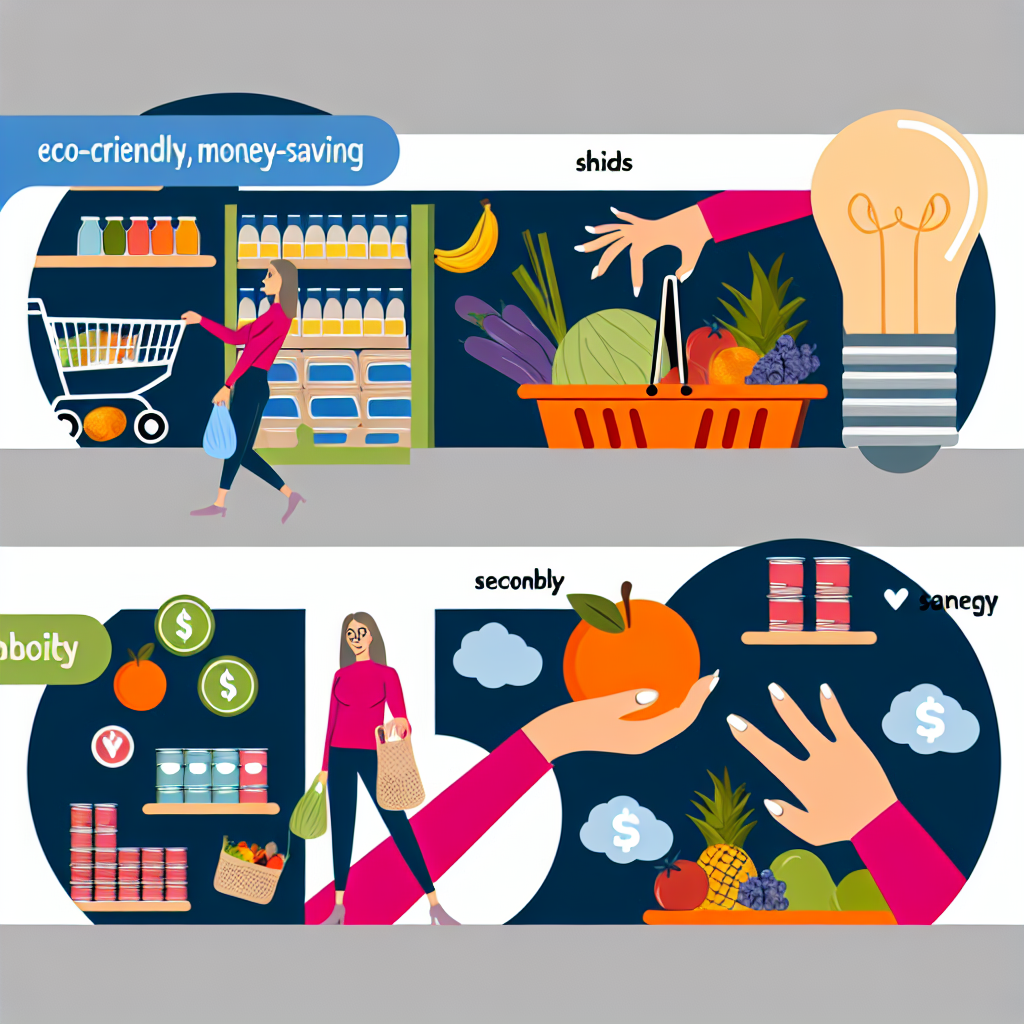10 Everyday Habits to Cut Your Grocery Bill in Half While Saving the Planet
Introduction
Hello, fellow Earth-loving penny pinchers! Have you been to the grocery store recently, only to gasp at the prices and clutch your wallet like it’s your firstborn? You’re not alone. With grocery costs rising and the environmental impact of food production troubling Mother Nature, it’s more important than ever to adopt sustainable habits. These habits not only make your wallet thicker but also make the planet greener.
Welcome to the Frugal Zeitgeist, where we’re sharing tips on habits that will cut your grocery bill in half and help save the planet. Buckle up, because these ten habits are not just good for your budget, but for the Earth too!
Habit 1: Meal Planning
Meal planning isn’t just for busy moms; it’s for smart budgeters and eco-warriors too! Here’s why it’s great:
- Budget Management: With a plan, you avoid impulse buying and expensive last-minute takeout.
- Less Food Waste: Know exactly what you need and use exactly what you buy.
- Efficient Shopping: A solid grocery list is your best friend.
Tips for Effective Meal Planning:
- Create a Weekly Menu: Make a weekly menu and soon you’ll be a captain in your kitchen.
- Use a Shopping List: Stick to it strictly. That bright orange cheese dip isn’t on it!
- Plan Meals Around Seasonal Produce: It’s fresher and cheaper. Who wouldn’t love eating in season?
Habit 2: Buy in Bulk
Ever heard that less is more? In the grocery world, more can actually be “less”—at least when it comes to cost and waste.
- Save Money: Buying in bulk usually means a lower price per item, plus less packaging waste helps the planet.
- Best Bulk Buys: Grains, nuts, spices, and beans.
- Storage Tips: Use airtight containers to keep your bulk goods fresh longer—no one likes stale quinoa.
Habit 3: Grow Your Own Produce
Imagine biting into a tomato that’s so fresh it tastes like sunshine. That could be yours with a little effort and soil.
- Budget-Friendly: Seeds cost less than produce, and you might feel like money grows on plants in your backyard.
- Environmental Benefits: No transportation emissions; you’re steps away from your kitchen.
- Start Small: Begin with easy plants like basil, radishes, or lettuce. They’re perfect for beginners!
Habit 4: Embrace Plant-Based Eating
Eating less meat might sound tough if you’re a meat lover, but reducing meat can be amazing for your health and the environment.
- Cost-Effective: Lentils and beans are cheaper than fancy meats.
- Environmental Benefits: Lower your carbon footprint.
- How to Start: Try Meatless Mondays or swap one meal with a plant-based option. Need recipes? The internet is your oyster mushroom!
Habit 5: Use Leftovers Creatively
Turning leftovers into new dishes is like finding treasure in your fridge.
- Reduce Food Waste: It’s like having a magic trick that turns today’s dinner into tomorrow’s meal.
- Creative Ideas: Pizza for breakfast, stir-fried veggies for lunch, or make that stew into a new soup.
- Storage Tips: Use your freezer to keep leftovers. Proper portions save meals and moments of panic.
Habit 6: Shop at Local Farmers Markets
Supporting local farms will get you the freshest produce and some bragging rights.
- Economic Support: Your money goes directly to farmers, helping them continue their work.
- Environmental Benefits: Less travel means less carbon footprint.
- Pro Tips: Find your nearest market and see what’s in season. Pro tip—arrive early for the best picks!
Habit 7: Reduce Processed Foods
Your wallet—and your waistline—will thank you for skipping these costly options.
- Financial Benefits: Less money spent on packaged goods means more savings.
- Healthier Choices: Whole foods offer more nutrients and fill you up for longer.
- Easy Swaps: Go from boxed mac and cheese to homemade, choose fresh instead of canned. Small steps add up!
Habit 8: Learn to Preserve and Store Food
Get ready to preserve your own food like an expert.
- Preserving Techniques: Canning, freezing, and drying—so many options to extend your food’s life.
- Extended Shelf Life: Proper storage means less waste and more delicious food.
- Learn the Craft: There are many resources online to start your preserving journey.
Habit 9: Use Reusable Bags and Containers
Say goodbye to single-use plastics!
- Environmental Impact: Reduce plastic waste in oceans and landfills.
- Convenience: Reusable bags hold more and are sturdier.
- Tips: Keep them in your car or near the door. Watch your new habit make a difference.
Habit 10: Be Mindful of Portion Sizes
More food doesn’t always mean better. Being careful with servings helps a lot.
- Reduced Waste: Serve only what you’ll eat to cut down on leftovers.
- Budget-Friendly: Stretch your food budget further.
- Mindfulness Techniques: Focus on what your body needs rather than what your eyes want.
Conclusion
There you have it—the Frugal Zeitgeist guide to more sustainable shopping and eating. These ten habits are a mix of smart shopping and green living, leading to happier wallets and a healthier planet. Start small; pick one or two habits to try out. Soon, you’ll be saving money and sharing your eco-friendly ways with friends. Why not take that first step today? Share your experiences and extra tips with us in the comments below!
